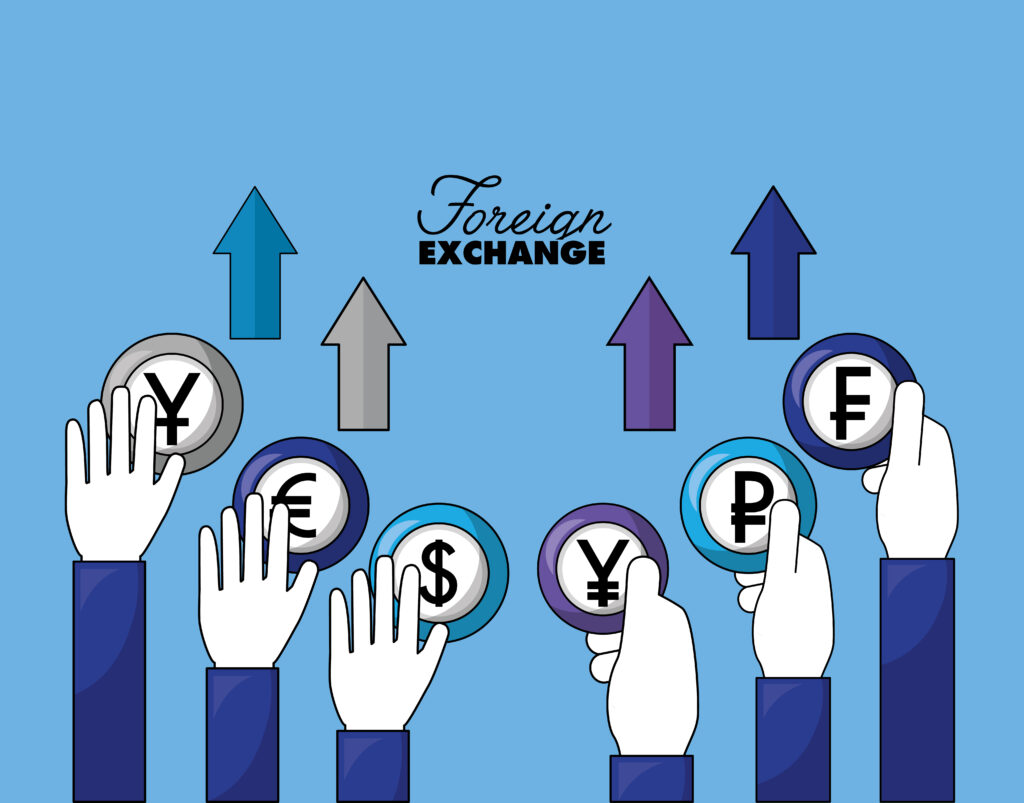Introduction
Exchange rates play a crucial role in the global economy, affecting trade, investments, tourism, and financial transactions. Understanding how exchange rates work and knowing how to get the best rates can significantly impact your international financial dealings. In this blog, we’ll explore the fundamentals of exchange rates, factors influencing them, and practical tips to optimize your currency transactions.

- What are Exchange Rates?
Exchange rates represent the value of one country’s currency relative to another country’s currency. They fluctuate continuously due to various factors, such as supply and demand dynamics, economic conditions, and interest rates. The exchange rate between two currencies can be calculated using a simple formula:
Exchange rate = (Number of units of currency B that can be bought with 1 unit of currency A) / (Number of units of currency A that can be bought with 1 unit of currency B)
For example, if the exchange rate between the US dollar (USD) and the euro (EUR) is 1.10, it means that 1 USD can be exchanged for 1.10 EUR, and 1 EUR can be exchanged for 0.91 USD.
- Importance of Exchange Rates
Exchange rates impact various aspects of the economy and financial markets:
a. Cost of Goods and Services: Fluctuations in exchange rates influence the cost of imported and exported goods and services. A weaker domestic currency may lead to higher import costs but can benefit exporters.
b. Investment Value: Exchange rate changes affect the value of international investments. Gains or losses can occur when converting foreign investments back to the home currency.
c. International Business Profitability: Companies engaged in international trade may face currency risks that can impact profitability. Currency fluctuations can influence the value of sales and costs in different currencies.
d. Tourism and Travel: Exchange rates can influence the attractiveness of a country as a tourist destination. A favorable exchange rate can make traveling more affordable for foreign tourists.
- Factors Influencing Exchange Rates
The exchange rate of a currency is determined by supply and demand dynamics in the foreign exchange market. Various factors influence these dynamics:
a. Economic Conditions: Strong economic growth, low inflation, and stable fiscal policies generally increase demand for a country’s currency, leading to a higher exchange rate.
b. Political Stability: Political uncertainties or instability can reduce confidence in a currency, decreasing its demand and causing a decline in its exchange rate.
c. Interest Rates: Higher interest rates attract foreign investors seeking better returns, increasing demand for the currency, and raising its exchange rate.
d. Central Bank Actions: The central bank can influence exchange rates by increasing or decreasing the money supply. Printing more money can devalue the currency, while buying back currency can strengthen it.
- Tips for Getting the Best Exchange Rate
When traveling abroad or engaging in international transactions, it’s essential to get the best exchange rate:
a. Compare Rates: Research and compare exchange rates from various providers before making a transaction. Different institutions may offer slightly different rates.
b. Use Currency Converters: Online currency converters can give you an idea of the current exchange rate to ensure you receive a fair deal.
c. Be Aware of Fees: Some providers charge additional fees or offer less favorable rates. Consider all costs involved before exchanging currencies.
d. Timing: Exchange rates fluctuate constantly, so try to execute transactions when rates are most favorable.


Multiple currency conversions are a common aspect of international finance and travel. To navigate these conversions effectively, stay informed about exchange rates, compare providers, and consider various payment options to ensure the best possible outcome. Whether you’re a traveler, online shopper, or international business, prudent handling of currency conversions can save you money and improve your overall financial experience. (Check example in table above)
Conclusion
Understanding exchange rates is crucial for anyone involved in international finance, business, or travel. These rates are influenced by supply and demand dynamics, economic conditions, and central bank actions. By comparing rates, using currency converters, and being mindful of fees, you can optimize your currency transactions and make the most of your international endeavors. Stay informed about the latest rates and market trends to navigate the dynamic world of exchange rates successfully.
- Introduction to Accelerated Learning In today’s rapidly evolving world, the ability to learn quickly and efficiently has become paramount for individuals aiming to remain competitive and adaptable. Accelerated learning refers to a range of techniques and strategies designed to enhance the speed and efficiency of the learning process. As technology, industries, and information continuously change, […]
- Understanding the Entrepreneurial Mindset The entrepreneurial mindset is characterized by several key attributes that set successful entrepreneurs apart from the majority. A core trait among the top 2% of entrepreneurs is resilience. This quality enables them to navigate the inevitable challenges and setbacks that come with business ventures. Resilient entrepreneurs view failures not as obstacles […]
- The Porsche Carrera GT is a bit more than just another great sports car; instead, it is more an engineering marvel – actually, a racecar at heart fitted for the streets. At $440,000, there is much more to it than the V10 or the carbon construction; it is the symphony of novelty and design that […]
- Deciding the supreme “best 10” orthopedic specialists around the world is subjective and can shift depending on personal criteria and viewpoints. Be that as it may, based on notoriety, involvement, development, and understanding results, here are a few of the world-renowned orthopedic specialists who are reliably recognized for their greatness (We are providing Top 10 […]
- If you are looking for websites or services like SongsPK for downloading or streaming songs, this guide will show you the top alternatives. Finding platforms that cater to what users like is important because more and more people want different types of music. 1. Gaana Gaana is a popular music streaming service in India with […]